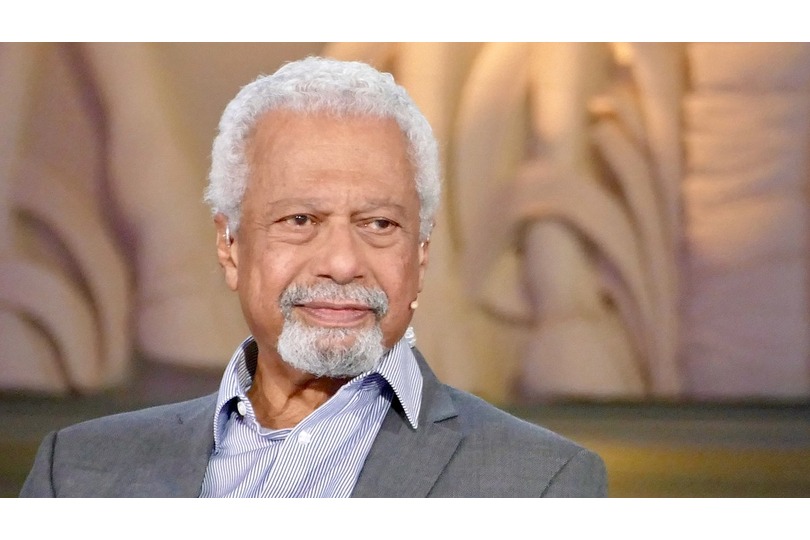Abdulrazak Gurnah, Nobel Laureate: Italicizing simply implies exoticizing words
While Afterlives is Gurnah’s most recent work, he has published 10 novels, short stories, and essays over the last 35 years.on Jan 19, 2023

When Abdulrazak Gurnah arrives at the Jaipur Literature Festival 2023 in January, he will be arriving on a high note, as the Tanzanian-born British author was awarded the 2021 Nobel Prize in Literature. It is one of many awards he has received in his nearly four decades as an author. He was the first Black writer to win the award since American novelist Toni Morrison in 1993. Gurnah is also the first African novelist to receive the award, following South African writer and political activist Nadine Gordimer in 1991.
The award was given "for his uncompromising and compassionate penetration of the effects of colonialism and the fates of the refugee in the gulf between cultures and continents". The fact that the global recognition is extremely personal adds to its uniqueness. He also admits that it has made his life more hectic than usual, which is understandable. According to a 2021 New York Times report, it was difficult to find Gurnah’s books after his victory for a variety of reasons, but that has now changed. "Some books were available here and others there, but they now have new editions and are more widely available. Some books must be translated. That is the most satisfying aspect of this recognition "He contributes.
While Afterlives is Gurnah’s most recent work, he has published 10 novels, short stories, and essays over the last 35 years. It began with his debut novel, a Memories of Departure, published in 1987, and was followed by others such as a Paradise in 1994 and âBy The Sea in 2001, both of which were nominated for the Booker Prize, among other honours.
Lives of refugees and literature
Notably, the most recent award comes at a time when the world's refugee crisis is at its peak, and it is very different from when he left the Sultanate of Zanzibar. He arrived in the United Kingdom as an 18-year-old refugee following the Zanzibar Revolution in 1964. He is sceptical that the award will inspire many other refugee authors to write about their experiences. "I hope it will be interesting for those who are compelled by this very important subject, but I really can't tell whether it will be harder or easier for others to voice their opinions," he says.
At the same time, Gurnah acknowledges that the refugee crisis has changed dramatically over the years, and not for the better. "I think it has become harder than easier," he shares, continuing, "There seems to be a kind of panic in Europe and America about this idea of refugees. Previously, I believe, there were measures that restricted refugees. It was not a criminalising narrative, nor was there a state panic that allowed people to drown in the seas or detained them rather than helping them.
They have been detained in appalling conditions, which can be fatal in some cases." However, he sees progress in the fact that more people are aware of the crisis as a result of others speaking out, protesting, and saying it is not human to treat people as we see in the world today.
Writing in English and its challenges
In addition, when Gurnah began writing about how people cope with displacement, trauma, and hopelessness in various forms, he did not intend to inform or change a reader's mind, which is a question we wanted to ask him. The author, who is also a professor emeritus of English and Postcolonial Literatures at the University of Kent in the United Kingdom, wrote about what he saw in front of him. "I don't think a writer begins the process by saying that I am going to change your mind through this book. I write about what I know and what I see, and I don't expect people to do anything as a result of what they read. It really depends on where the reader is in their own life and what they bring to that process and that is unpredictable," he shares.
Gurnah writes in English for this process, despite the fact that his first language is Swahili, because it is a choice that came naturally to him because he received an education in English in Tanzania and did a lot of reading and writing in the language after moving to the UK. He chose English, but that didn't stop him from including non-English words from Swahili, Arabic, and German in his writing. However, the 74-year-old author remains dissatisfied with the treatment of text through italicising words, a publishing industry practise for non-English words.
He goes on to say, "Italicizing words simply implies that they are exotic. This is an unusual word, an unusual idea, and something you are unfamiliar with. However, by not italicising it, you are allowing different ways of speaking, writing, and thinking to enter naturally and organically into how we think in English, making it familiar. Make it unusual by drawing attention to it." He believes, however, that it is not an urgent issue and that it will change as people become more familiar with and accepting of other words describing different types of states of mind or culture.



.jpg)






.jpg)
.png)
.jpg)
.jpg)
.jpg)
.jpg)
.jpg)
.jpg)










Sorry! No comment found for this post.